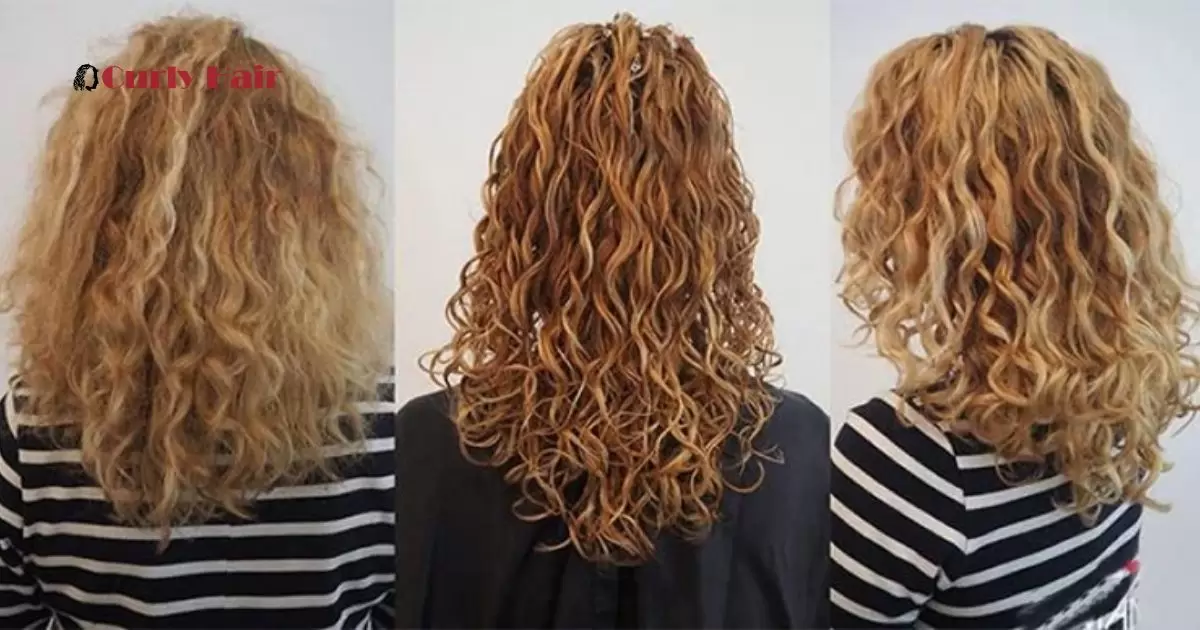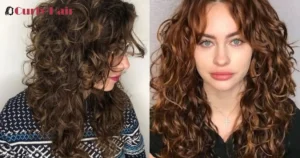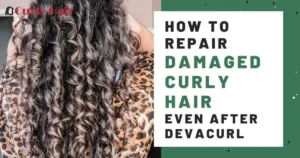Curly hair is prone to dryness due to its coiled structure. Strands have difficulty distributing natural oils evenly. Use a rich, creamy conditioner and leave-in products. Avoid sulfates that strip moisture. The seal ends with an oil.
Ever wondered, why is curly hair dry? It’s a struggle many people face. Curly hair tends to be drier and frizzier. The hair’s shape makes it harder for natural oils to travel. Each curl creates a bend that oils can’t easily pass through. This leaves curls thirsty for moisture, leading to dryness and frizz.
Curly hair’s structure makes it prone to dryness and frizz. The bends prevent oils from travelling down the hair shaft. As a result, curls lack moisture and become dry and unruly. Understanding this challenge is key. Keep reading to learn effective tips for taming and nourishing your curly locks.
Key Takeaways
- Curly hair tends to be dry due to its unique cuticle structure, which makes moisture retention challenging.
- Factors like pollution and environmental stressors exacerbate dryness in curly hair.
- Effective hydration and protective measures are essential for combating dryness and promoting healthier, more vibrant curls.
- Using moisturizing products rich in hydrating ingredients and adopting a tailored hair care routine can help maintain optimal moisture levels in curly hair.
- Embracing the natural beauty of curly hair starts with understanding and addressing its specific needs for hydration and care.
What Causes Dryness in Curly Hair?
Dryness in curly hair is often caused by its unique structure. The natural oils produced by the scalp struggle to travel down the spiral-shaped strands, leaving the hair prone to dryness. Additionally, curly hair is more susceptible to damage from environmental factors such as sun exposure and harsh weather conditions.
Frequent washing and the use of harsh chemical products can strip the hair of its natural moisture, exacerbating dryness. Curly hair also tends to be more porous, meaning it absorbs moisture quickly but loses it just as fast, leading to dehydration. To combat dryness, it’s essential to use moisturizing products specifically designed for curly hair and to adopt a gentle hair care routine to maintain its natural oils.
Environmental Factors
Environmental factors play a significant role in contributing to the dryness of curly hair. Biosilk good for curly hair can help mitigate these effects. Exposure to harsh weather conditions such as sun, wind, and cold air can strip the hair of its natural oils, leaving it parched and brittle. Pollutants in the air, such as smoke and toxins, can build up on the hair shaft, further exacerbating dryness.
Hard water, which contains high levels of minerals like calcium and magnesium, can leave deposits on the hair, making it feel rough and dehydrated. The use of heating tools and styling products combined with environmental stressors can compound the issue, leading to increased dryness and damage.
It’s essential to protect curly hair from environmental aggressors by using products with UV protection, minimizing heat styling, and rinsing hair with filtered water to mitigate the effects of hard water buildup.
How Does Sebum Affect Curly Hair Moisture?
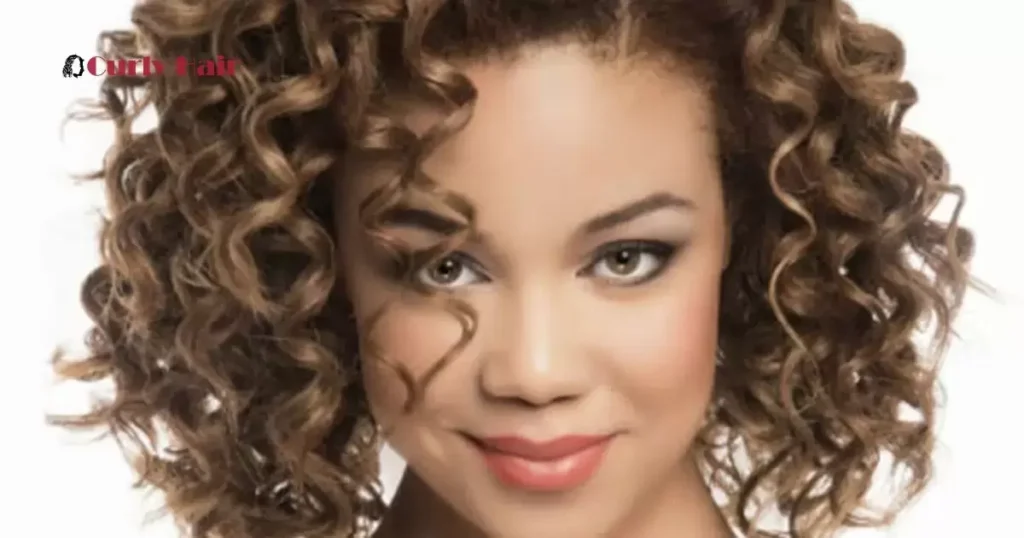
| Aspect | Impact on Curly Hair Moisture |
| Sebum Production | Natural oils are produced by the scalp. |
| Distribution | Sebum travels less easily down curly strands. |
| Moisture Retention | Curly hair may struggle to retain sebum. |
| Scalp Health | Proper sebum balance is crucial for scalp health. |
| Hydration | Sebum provides some moisture but may not be sufficient. |
Sebum, a natural oil produced by the scalp, plays a crucial role in maintaining the moisture balance of curly hair. Due to the shape of curly hair strands, sebum finds it challenging to travel from the scalp to the ends. This results in the ends of curly hair being more prone to dryness compared to straight hair.
When sebum fails to reach the ends of curly hair, it leads to a lack of lubrication and protection, causing the hair to become dry, frizzy, and prone to breakage. Consequently, individuals with curly hair often struggle with maintaining moisture levels and require extra care to keep their curls hydrated and healthy.
Understanding the impact of sebum on curly hair moisture is essential for devising effective hair care routines tailored to meet the specific needs of curly hair types.
Natural Oils Distribution
When it comes to understanding why curly hair tends to be dry, one crucial factor is the distribution of natural oils. Unlike straight hair, where oils from the scalp can easily travel down the shaft, curly hair’s spiral structure makes this journey more challenging. The bends and twists in curly hair create obstacles for the natural oils to move along the strands, leading to dryness.
Curly hair often has a higher porosity, meaning it can absorb moisture quickly but struggles to retain it. This porous nature allows moisture to escape more easily, leaving the hair feeling dry and brittle. Therefore, maintaining adequate moisture levels through hydrating products and techniques becomes essential for managing and nourishing curly hair.
Sebum’s Role in Hydration
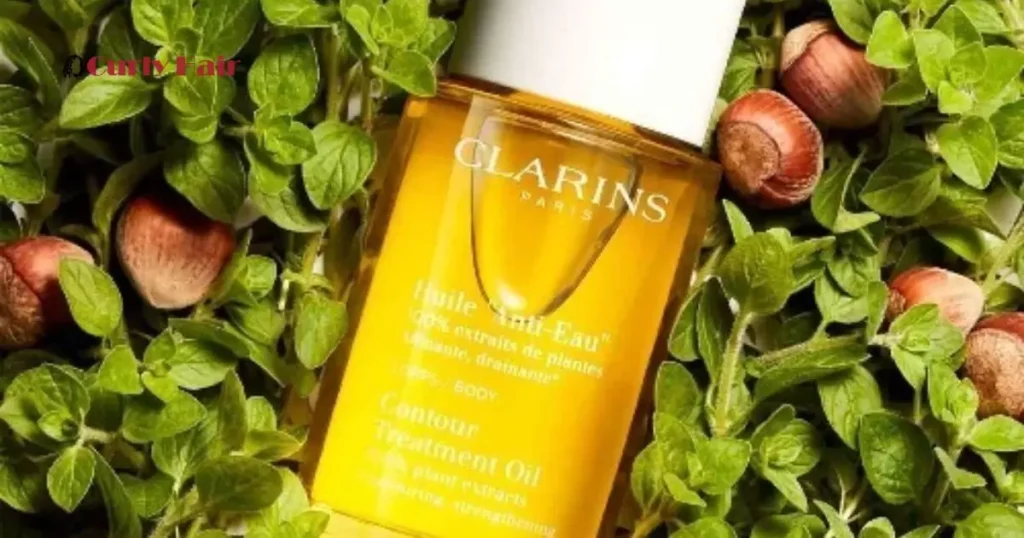
Sebum, a natural oil produced by the sebaceous glands, plays a crucial role in hydrating our hair. It acts as a protective barrier, preventing moisture loss and keeping the hair shaft lubricated. However, individuals with curly hair often struggle with dryness due to the shape of their hair follicles, which makes it difficult for sebum to travel down the hair shaft effectively.
In curly hair, the bends and twists create a barrier that inhibits sebum distribution, leading to dryness and frizz. This lack of natural oils leaves the hair vulnerable to environmental factors such as humidity and heat, further exacerbating dryness. Individuals with curly hair need to adopt a hair care routine that focuses on moisturizing and sealing in hydration to combat dryness effectively.
Impact on Curl Definition
Curly hair’s dryness significantly impacts its definition. Lack of moisture can lead to frizz, causing curls to lose their shape and bounce. When hair lacks hydration, it becomes prone to breakage, resulting in irregular curl patterns.
To maintain curl definition, hydration is key. Using moisturizing shampoos and conditioners tailored for curly hair replenishes moisture, enhancing curl structure. Applying leave-in conditioners and oils helps seal moisture, preventing frizz and promoting defined curls. Regular trims also aid in maintaining shape and preventing split ends, contributing to overall curl definition and health.
Treatments For Curly Dry Hair
When it comes to treating curly dry hair, moisture is key. Begin with a hydrating shampoo and conditioner designed specifically for curly hair. Look for products containing ingredients like shea butter, coconut oil, or argan oil to nourish and moisturize your curls. After washing, apply a leave-in conditioner or hair mask to further hydrate and replenish your locks.
Regular deep conditioning treatments are essential for restoring moisture to curly dry hair. Incorporate a deep conditioning treatment into your hair care routine at least once a week. Choose a product rich in hydrating ingredients such as olive oil, avocado oil, or honey.
Apply the treatment to damp hair, focusing on the mid-lengths and ends, then leave it on for the recommended time before rinsing thoroughly. This will help to soften and moisturize your curls, leaving them more manageable and less prone to dryness and frizz.
Moisturized Curly Hair
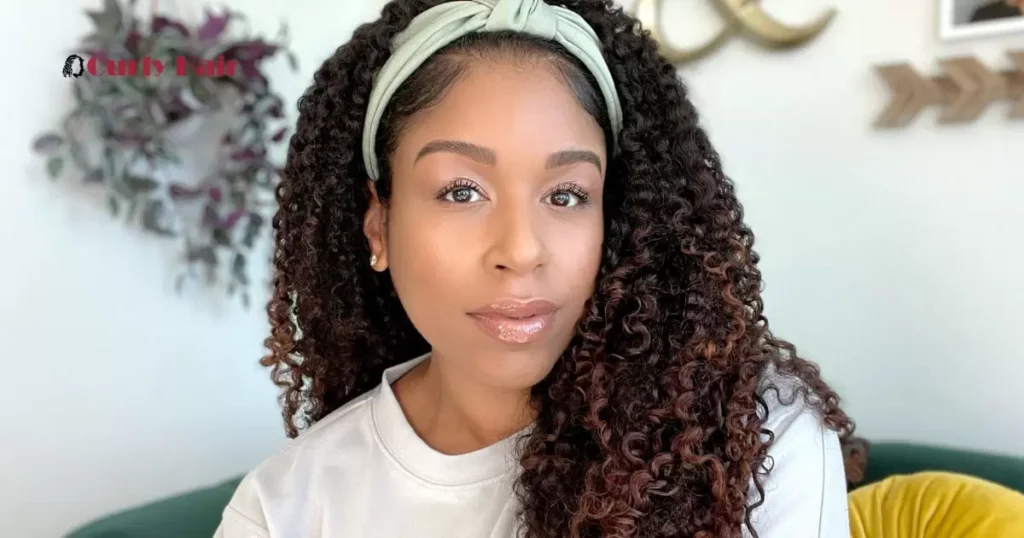
Moisturized curly hair is essential for maintaining its health and vitality. Hydration is key to combating dryness, a common issue among those with curly hair. Using a hydrating shampoo and conditioner specifically formulated for curly hair can help lock in moisture and prevent dryness.
To maintain moisture in curly hair, consider using a microfiber towel or a cotton t-shirt to gently pat your hair dry instead of rubbing it vigorously. Additionally, avoid using hot styling tools frequently, as they can further dehydrate your curls. Embrace air-drying or using a diffuser on low heat to minimize damage and preserve moisture in your curly locks.
What Role Does Cuticle Structure Play in Dryness?
The cuticle structure, the outer layer of the hair shaft, plays a pivotal role in dryness. In curly hair, the cuticle tends to be more raised and uneven, making it easier for moisture to escape. This irregularity in the cuticle’s alignment creates gaps where moisture can evaporate, leading to dryness.
Cuticle Layer Thickness
The thickness of the cuticle layer significantly influences hair dryness. In curly hair, the cuticle tends to be thinner, making it more prone to damage and moisture loss. This thinner cuticle structure exposes the inner layers of the hair, leading to increased susceptibility to dryness and frizz. Managing and protecting the delicate cuticle layer is crucial in maintaining moisture balance and preventing dryness in curly hair.
Cuticle Damage Effects
Damage to the cuticle exacerbates dryness in curly hair. When the cuticle is compromised, either through heat styling, chemical treatments, or rough handling, it loses its ability to retain moisture effectively. As a result, the hair becomes more porous, allowing moisture to escape easily and leaving the hair feeling dry and brittle.
Moisture Retention Challenges
Moisture retention poses significant challenges for curly hair due to its unique cuticle structure. The raised and uneven cuticles make it difficult for moisture to penetrate and stay locked in the hair shaft. As a result, curly hair tends to become dry more quickly than straight hair types. This struggle with moisture retention can exacerbate issues such as frizz and breakage, requiring specific care routines tailored to curly hair’s needs.
How Do Environmental Factors Influence Curly Hair Dryness?

Environmental factors play a crucial role in influencing the dryness of curly hair. Exposure to elements like sun, wind, and humidity can strip moisture from the hair shaft, leaving it parched and brittle.
Harsh weather conditions can cause the cuticle to become even more raised, exacerbating moisture loss. Consequently, protecting curly hair from environmental stressors through the use of hats, scarves, and protective styling can help maintain its hydration levels and overall health.
Heat Exposure Effects
Excessive heat exposure exacerbates dryness in curly hair. The heat from styling tools like blow dryers and flat irons can strip away moisture from the hair shaft, leaving it parched and brittle.
Frequent exposure to sunlight can further dehydrate curly hair, leading to increased frizz and dullness. Those with curly hair must minimize heat styling and protect their locks with heat-protectant products to maintain moisture balance and overall hair health.
Pollution Impact on Moisture

Pollution can exacerbate moisture loss in curly hair. Environmental pollutants, such as smoke and dust, can accumulate on the hair’s surface, disrupting the cuticle’s natural barrier. This interference prevents moisture from entering the hair shaft, leading to increased dryness and brittleness.
Pollutants can create a layer of grime that weighs down the hair, making it appear dull and lifeless. Regular cleansing and protective measures are essential to minimize the impact of pollution on curly hair’s moisture balance.
Frequently Asked Questions
Why are my curls not defined?
Your curls may lack definition due to factors such as improper hydration, product buildup, or heat damage.
Why is my curly hair so frizzy?
Curly hair tends to be frizzy due to its natural structure and susceptibility to moisture loss.
How do you rehydrate curls?
To rehydrate curls, use a moisturizing conditioner rich in hydrating ingredients like shea butter or coconut oil, followed by a leave-in conditioner to lock in moisture.
Conclusion
In conclusion, understanding, why curly hair is dry, is crucial for effective hair care. The unique cuticle structure of curly hair plays a significant role in its dryness, as it makes moisture retention challenging. Factors like pollution and environmental stressors further exacerbate this dryness, making it essential to adopt a tailored hair care routine.
By focusing on moisturizing products and protective measures, individuals with curly hair can combat dryness and achieve healthier, more vibrant curls. Embracing the natural beauty of curly hair starts with proper hydration and care, ensuring that each curl thrives with vitality and moisture.
